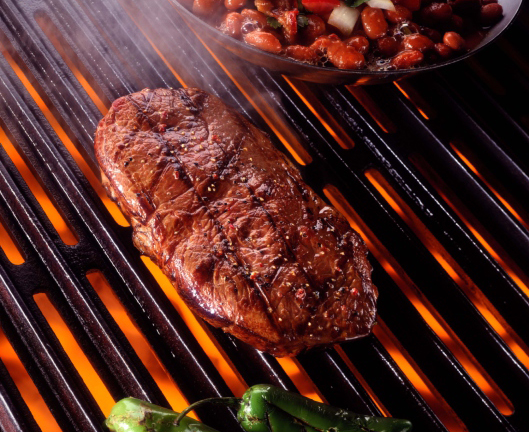Red Meat and Heart Disease: Good or Bad For Heart Health?
 Questions surrounding the consumption of red meat and its contribution to heart disease has led to varied research. A main source of the nutrient choline is red meat and carnitine is derived of amino acids which are protein building-blocks. Red meat is a rich source of protein. Hence this exploration into whether or not we have another reason to reduce red meat consumption.
Questions surrounding the consumption of red meat and its contribution to heart disease has led to varied research. A main source of the nutrient choline is red meat and carnitine is derived of amino acids which are protein building-blocks. Red meat is a rich source of protein. Hence this exploration into whether or not we have another reason to reduce red meat consumption.
What is choline?
Choline is a nutrient that plays a role in liver function, normal brain development, muscle movement, nerve function, metabolism, and sleep. Choline is also involved in absorbing and removing fat and cholesterol from the body, reducing chronic inflammation, and the kidneys control of water balance.
What is carnitine?
Carnitine is an umbrella term for several amino acid compounds. As stated above, amino acids are the building-blocks of protein. Carnitine plays a role in energy production, by moving long chain fatty acids along a series of events so they are oxidized to produce energy. Carnitine levels are highest in skeletal and cardiac muscles which utilize fats for fuel.
Dietary sources of choline and carnitine
The body makes carnitine, so dietary and supplemental carnitine is not necessary in most cases. Carnitine is produced from the biosynthesis of the amino acids methionine and lysine which are found in beans and rice. Carnitine is often added to energy drinks and may also be taken as a supplement.
Choline is found in eggs, milk, poultry, shellfish, fish, and red meat.
Oxidation of carnitine and choline leading to increased heart attack risk
The reason for concern regarding carnitine and choline (and therefore red meat) is due to the oxidation of these two nutrients.
Okay, I’m going to get a little technical here, but just stick with me. During digestion gut bacteria metabolize carnitine to trimethylamine. Trimethylamine is further oxidized in the liver to trimethylamine-N-oxide (TMAO). TMAO is then released into the bloodstream.
The body can also convert choline into TMAO through a similar series of events.
TMAO is a toxic substance that appears to increase cholesterol buildup and plaque formation in arteries, which leads to increased risk for heart attacks and strokes.
For this series of events to take place, your gut must contain TMAO-producing gut bacteria. After consuming carnitine, meat eaters produce more TMAO versus those who consume a mostly plant-based diet.
Further research continues to be conducted on this confusing subject, but right now it’s shown that carnitine and choline by themselves are not the culprits for TMAO production. If you consume a diet high in meat, gut bacteria may be altered resulting in increased production of TMAO, which is one way a diet high in red meats may increase heart disease risk.
The take away should come back to all things in moderation. I know… boring, but it is what it is. Keep variety in your diet. Don’t eat red meats daily, mix it up with poultry, fish and vegetarian meals. A well-balanced diet equals healthy gut flora, which means reduced risk for production TMAO and other harmful byproducts of digestion.
While the DASH Diet is aimed for lowering blood pressure, it is a great, well-balanced diet for anyone with heart health concerns. Access my ecourse “How to Lower Cholesterol in 8 Simple Steps“ for specific cholesterol-lowering guidance here.
All the best,
Lisa Nelson RD
Health Pro for HealthCentral



